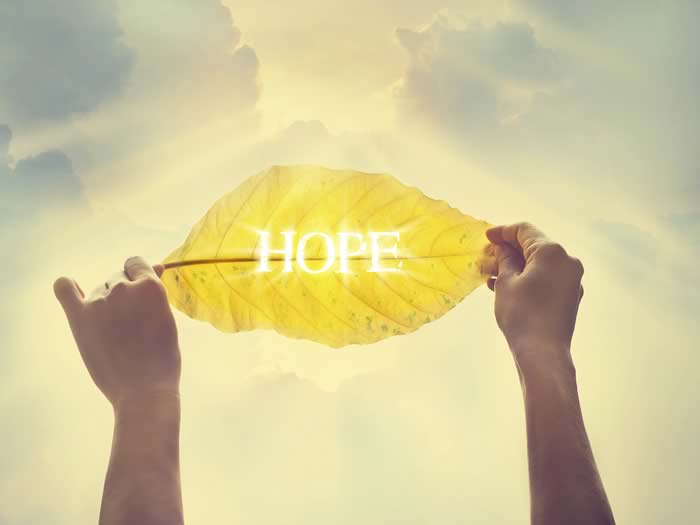Isaiah 2:1-5 He shall be a judge between the nations and shall arbitrate for many peoples; they shall beat their swords into ploughshares, and their spears into pruning hooks; nations shall not lift up sword against nations, neither shall they learn war anymore (v.4)
Matthew 24:36-44 –But about that day and hour no one knows, neither the angels of heaven, nor the son, but only the father.
(v.36)
It was when as a teenager, I was beginning the story in my little class in the primary department of the Sunday School. We were sitting round in a circle on impossibly small purpose-designed chairs and I began to talk about bulrushes and a baby. ‘Oh no’ said the little boy opposite me. ‘not Moses again’. Well if you can get jaundiced at hearing the same folk and faith tales at six years of age, how about us as we travel through the Christian Year again and again. Here we are at the threshold of another cycle. Think of it only as a cycle and there may be signs of over-familiarity. More or less if you have been a regular church-goer for years on many if not most Sundays of the year you know what you are going to get before you get there.
A bit of a treadmill and whilst there is much good in reaffirming the ground of our faith – making sure that we tuck most of it in every twelve months, there is the obvious danger. Advent ‘again’?
Let’s look at it rather differently, seeing the church year not so much as cyclical but instead as the great pendulum of faith – swinging widely between the birth of Jesus at one extreme and the death of Jesus at the other, the two making the same inescapable statement to us through all these years of Christian history. And just as our own lives are marked by a beginning and an end, this birth and this death and with the death a resurrection, provide the rhythm of our worship and the pathway we travel as followers of Jesus. And as the pendulum swings between these two constants of human history, it gathers into its arc our Christian inheritance and makes its particular challenge for every age, so that the moment of reflection which now we share, is more than the repetition of a familiar story and becomes effectively a story that is new.
Lets think about the inheritance and then the challenge at this turn of the Christian year.
The inheritance
They are brother and sister to each other, these two great Christian festivals, both illumining and interpreting the other. Between the two there is the festival of Pentecost – the foundation of the church. There are also festivals appropriate to our denominational history; for Catholics there are a multitude of saint days and there are anniversaries connecting us to some of the remarkable people who have reformed or preserved faith through the centuries.
Then there are a series of special Sundays that respond to contemporary needs such as Race Relations Sunday, and today’s ‘Women against violence Sunday’. We have our own Women’s Refuge in Bath to remind us of the reality of that issue. The ‘specials’ are part of the on-going pattern of our church life. There is too of course the basic reference book of our faith; the scriptures written for one audience, not immovable and absolute and dead, but open by the Spirit to the interpretation and application of every age and culture.
There is also the great wedge of human history that has been affected by the Christian testimony – for better and sadly often, for worse. I am a great fan of the church historian Diarmaid MacCulloch, I became a regular customer of our local library as I read his history of the two hundred years of the Reformation, frequently renewing it to devour its 700 plus pages! It’s the work that faces the reader with the many extraordinary characters and cataclysmic events that have helped to form our inheritance in the years that changed the face of Christian Europe. Peer into that history and all that preceded and followed it and you are appalled at what we have done to the Jesus story ever since. So many people knowing more about him and being more dogmatic and authoritarian about him, than he was of himself.
And yet the story has survived. The sustaining spirit of the Christ remains, and in words and lives the good news of a different and authentic way to be human continues to be the purpose and justification of the Church made manifest by the succession of good people, often brave and noble too, who have beautified rather than besmirched our inheritance. The church of Augustine, St. Francis, Luther, Thomas Beckett, Wesley, Dietrich Bonhoefer, William Temple, Desmond Tutu and whoever it was who chaperoned us into faith when we were young. So we could go on. We are part of that immense succession of faith and faithfulness which if it doesn’t compensate for all the crazy things Christians have done to each other and to the purity of God, certainly balances them.
The Challenge
Some of the issues of our present day have the feeling of a surreal repetition of the very first years of the Church. For pharisaic nit-picking and priestly elitism read Christian and Moslem fundamentalism; for zealots read terrorists. Although every generation thinks it faces problems that have never existed before, human nature remains stubbornly and often tragically the same. Whilst we have learned that there is no such thing as inevitable progress, it sometimes seems there is no progress at all. Someone wrote of young people, ‘Children are tyrants. They contradict their parents, gobble their food and tyrannise their teachers’. And that was Socrates in the 4th. century B.C. Times it seems aren’t a-changing. Power today as throughout history is appallingly abused.
But in fact there are massive differences that we have to place in the arc made by the Christina pendulum. In knowledge alone. Sir Isaac Newton once said. ‘I seem to have been only like a boy playing on the sea shore and diverting myself in now and then finding a smoother pebble or a prettier shell than ordinary, whilst the great ocean of truth lay all undiscovered before me’. That was at the end of the 17th. century, now we are almost engulfed by that great ocean. ‘Truth springs from the earth’ says the psalmist – and from the sea, and from the heavens. I try to keep some sort of track of this expansion of speculation that sometimes ends up as some sort of scientific fact. I struggled with a recent one – dark energy and dark matter – which is apparently pushing the universe apart at an accelerating rate when gravitational pull should be making it slow down or contract. Around 200bn galaxies each containing 200bn stars are detectable by telescopes, the article I read claims, and these add up to only 4% of the whole cosmos. More knowledge surrounds us than ever before and much, much more than we often feel we can bear.
And at the human level there are countless examples of altruistic care for the vulnerable and needy.
But is there going to be an end to it? – suddenly by a falling asteroid or slowly by global warming. Or by the apocalyptic return of Jesus? There it is in some of the more lurid passages of the testaments, old and new and prominent in Christian history. The final challenge. The Advent challenge. An end to it all and the winding up of the human story. Two things about that.
It’s a recurring theme : millennialism. It’s not just a Monty Python joke – the people on a mountain top waiting for the day they believe is going to happen and then shamefacedly having to revise it when it doesn’t., saying as they climb down the mountain ‘see you next millennium day’. Sects, cities, cults based on personalities have at various times in the past recited this recurring belief that one day the Lord will return and bash his enemies (the people who don’t see things as I do ) and vindicate the faithful ( my sort of people). And such movements have forgotten the words Matthew gives to Jesus – ‘about that day and hour no one knows, neither the angels of heaven, nor the son, but only the father’. (v.36). So, what you can’t know, don’t waste time pretending you do and instead respond to an unknown future by ‘keeping awake’. There is however some sort of promise here, a warning that we can’t ignore. One day, the pendulum will stop.
And the other challenge of Advent is this vision of Isaiah : impossibly optimistic in the days it was uttered and equally so through the centuries and in our present age. Can we cope with such apparently baseless hope? I think so, yes. Ultimately it’s almost all there is – HOPE, the prime Advent theme. I see an organisation called the European Social Forum had three days of international debate, celebration and protest in London in the middlesome time back. And the title of their conference? ‘Another World is Possible’., which is precisely the thrust of the international ‘occupy’ movement. And if concerned and politically active people can envisage change ; even more can the community of Christian people who are also active in the world.
A great shaft of light breaks through the sullen darkness of our false crusades, our tactics of military vengeance and disproportionate force as the little people of the world are oppressed, marginalized; many killed and their land and homes desecrated by the false simplicities of the mighty and the heedless, for whom conquest seems to matter more than reconciliation and single obsession crowds out the implications of thoughtless action. We must put Hope into the arc of our pendulum and if one day the swing between the two pivotal moments of our faith, stops, in Isaiah’s vision, the judgement that begins will be one of arbitration and peace, from the mercy and loving kindness of a God who never despairs.
Advent and Easter and the great sheltering movement between them are for pilgrims – those who journey with God – who face our human story and its apparently unceasing downward spiral, with a brave denial that this is how God wants it to be, and with a faith that believes that one day nations shall not lift up swords against nations, neither shall they learn war anymore. There are some who argue that the distinctive mark of a Christian is that they have faith. Well, yes – though today there are many examples amongst Moslems and Christians of how dangerous faith can be. Even so, faith is our connection with God – his faith in us. Love is his supreme gift to us. And hope is the way we live.
One day there will be a new dispensation of love, peace and justice and in a mystical sense already that day belongs to us As the pendulum swings on our journey through the years, we are not ‘here agai’n, for every time we meet in Jesus, it is God’s new time. Let it be.





